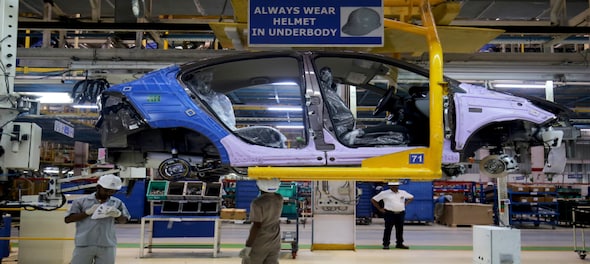
The global manufacturing industry is undergoing a massive overhaul, with the advent of the fourth industrial revolution—Industry 4.0. Add to that, the pandemic has accelerated the pace of digital transformation to meet the evolving demand and challenges of manufacturing, logistics, and supply chain. Most organisations are adopting advanced technologies, such as the Industrial Internet of Things (IIoT), big data and analytics, digital twins, as well as, the connected factory and supply chain, in order to upgrade the legacy manual systems to smart processes.
The emergence of smart automobiles
One of the first industries to undergo the change is also one of the largest industries by revenue—the automobile industry. Research shows that the global automotive motors market size is projected to grow from $20,321 million in 2020 to $25,719 million by 2025 at a CAGR of 4.8 percent.
Industry 4.0 brings together automation and connectivity to the conventional industrial apps, with the IIoT industry showcasing a unique combination of factory automation, such as warehouse management, and applications in the field, including drones or robots. And, the automotive industry is emerging as one of the biggest IIoT sectors today. In fact, a recent study states that the automotive IoT market is expected to reach $541.73 billion by 2025, at a CAGR of 16.4 percent during the forecast period of 2019 to 2025.
The application of IoT includes improvised transportation efficiency and management capabilities; designing smart and autonomous vehicles; and increased demand for digital devices to help analyze real-time data on fleet operators and vehicle users. Further, as the industry moves toward more automation, the rise of transportation as a service (TaaS) and fleet management applications are expected to gain greater traction.
Data in the automotive industry
While the cars are becoming more intelligent, they are being populated with a host of autonomous driving and onboard systems, such as infotainment and telematics, dashboard cameras, vehicle-to-everything (V2X) communications, safety sensors, and artificial intelligence (AI) based driving systems. This resultant shift to automation across processes and the use of digital technologies is giving rise to the massive growth of data in the automotive industry. In fact, it is expected that cars would require about 1TB of data storage, if one considers a fleet, then the data being generated is going to be far higher.
Additionally, data requirements for different applications are going to be different; not to mention the fact that some data in the connected car may only be required for a few seconds, while other data must be retained for days, months or even years. The same goes for capacity requirement diversity, as the digital dashboard requires a little capacity to operate while navigation and entertainment naturally depend on large file sizes such as maps, images, and music files.
Data storage solutions for automotive industry
As today’s connected cars are transforming into “Data on Wheels”, there is a significant need for data management and storage. Moreover, parallel industries, such as insurance, will require data logging in case of an accident or unexpected event. Most of this data generated and collected from different dimensions would need to be uploaded on the cloud on a daily or regular basis, depending on the application.
Therefore, auto manufacturers need unique storage solutions and here is what they should look for:
Capacity: The volume of data collected by the IIoT apps is huge, and thus needs to be captured constantly and consistently to be able to use for better outcomes. This requires storage solutions that offer huge capacity and high-write performance.
Environment: To protect the data collected, the storage solutions must be able to withstand a wide range of environmental conditions such as high temperatures, extreme cold, humidity, shock, and vibrations.
Performance: In automotive, the ability to capture and upload data quickly is critical, and so the storage solutions that feature low-latency and inherent performance gains are imperative.
High endurance: Mostly, the IIoT devices are situated in remote locations and not easily accessible. Therefore, the data storage solutions being used must sustain continuous read and write for a prolonged time frame.
Reliability: The storage solutions should be able to enhance the reliability and serviceability of data, help reducing the overall maintenance costs, thus optimize the total cost of ownership.
The applications of data storage solutions—whether on the shop floor or on the road—are manifold in the automotive industry. With robust, resilient, versatile data storage solutions, auto manufacturers will not only be able to collect and process that data but also secure and safeguard it against loss or theft.
—The author, Khalid Wani is Director – Sales, India, Western Digital. The views expressed in the article are the author's own
(Edited by : Ajay Vaishnav)
Check out our in-depth Market Coverage, Business News & get real-time Stock Market Updates on CNBC-TV18. Also, Watch our channels CNBC-TV18, CNBC Awaaz and CNBC Bajar Live on-the-go!


Stampede-like situation disrupts Rahul Gandhi, Akhilesh Yadav's joint rally in Uttar Pradesh
May 19, 2024 4:26 PM
Ladakh Lok Sabha election: With Independent candidate's entry, it's now a 3-way contest for BJP and Congress
May 19, 2024 4:01 PM

